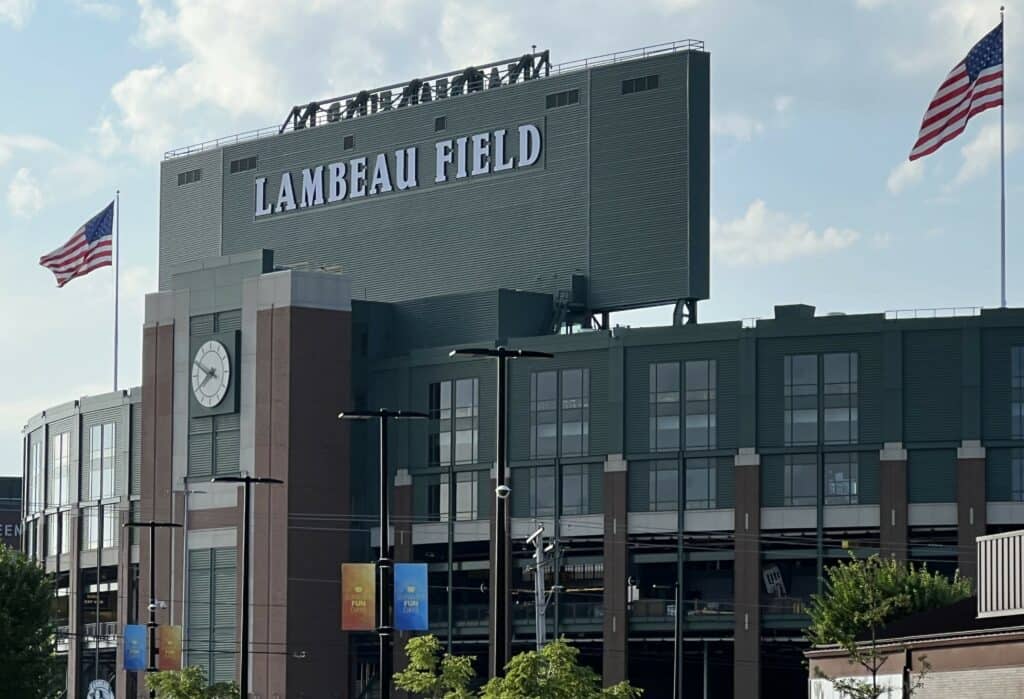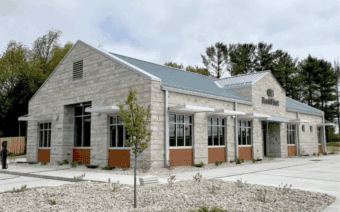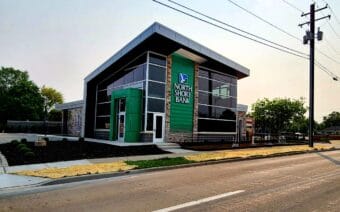
July 29, 2024
GREEN BAY – Not only did the Green Bay Packers perform well on the field last season, it saw success financially speaking as well.
The Packers – the National Football League’s (NFL) only publicly owned team, therefore the only one required to publicly release their financial statements – reported another solid year in terms of the team’s overall financials.
“From a financial standpoint, I feel confident in the kind of financial wherewithal and expertise we have,” President/CEO Mark Murphy said.
The team reported a total revenue of $654.1 million for the fiscal year (April 2023 to March 2024) – a 7.2% increase from the previous year’s $610.3 million.
The report also showed a $60.1 million operating profit for the 2023 fiscal year – a 12.5% decrease from last year’s $68.6 million.
Though profits from operations are down, Murphy said, “it is still at a fairly high range historically.”
More numbers
Murphy said the Packers saw a 7.5% boost in its national revenue – which primarily encompasses the network television contracts – increasing from $374.4 million in 2023 to $402.3 million in 2024.
“I think part of that is the natural increases we have in the national broadcast deals,” he said. “And then the other thing the league has done a bit more recently is streaming. The Thursday night games have been on Amazon for a couple of years now, and we will be playing Friday night in Brazil – that game will be on Peacock.”
Murphy said the “lion’s share” of the team’s national revenue money comes from broadcast television, “but the way a lot of people watch TV is changing.”
“The league has said they want to be where the people are, and so I think (it’s) smart in terms of the number of things they’ve done in that regard,” he said.
New this season, Murphy said, will be streaming games on Netflix.
“The (number of) subscribers for Netflix is 380 million, I believe,” he said. “I think strategically moving and having several games on Netflix makes a lot of sense for the league.”

Murphy said the organization saw slower growth locally – a 6.7% increase from $235.9 million (2023) to $251.9 million (2024).
“Local revenue was up, although not quite as much as national revenue,” he said. “A couple of things there – our sponsorship (partners) is a credit to Craig Benzel, our vice president of sales and business development. He does an outstanding job, and we had a good year from a sponsorship standpoint.”
The team’s performance on the field – extending into the second round of last season’s playoffs – Murphy said, also contributed to the local revenue increase.
“With the team ending the season on a strong note, our pro shop saw benefits there,” he said.
On the flip side of the coin, the team’s expenses saw a 9.7% increase from 2023 ($541.6 million) to 2024 ($654.1 million) – which Murphy said can be credited to a couple of different things, including players and depreciation.
“We had a number of players whose careers (with the Packers) ended before their contracts did, so we took a fairly big hit there,” he said. “But also our depreciation was high.”
Murphy said that is partly due to capital investments in Lambeau Field and football facilities.
“We made a number of significant investments in our facilities here – within the football facilities and the stadium,” he said. “We put new video boards up on both ends of the stadium, as well as concourse renovation.”
Additional phases of the concourse renovations, Murphy said, are taking place this year.
“We are also going forward with the construction of a third locker room – which we think will be positive for us in terms of hosting (other) events,” he said.
The Packers reported an investment fund gain of $64.3 million – a 413.6% jump from 2023’s loss of $20.5 million.
“Last year, we had a pretty significant loss, this year, we had a pretty significant gain,” Murphy said. “We have what we call a corporate reserve fund – which is like a strategic fund – that we use for a couple of things. No. 1 to make sure we can continue to support the team at a consistent championship level, as well as maintaining Lambeau Field and making sure it remains a great asset for us and the kind of stadium that is iconic so people want to come visit.”
To put it into perspective, Murphy said last year, the team’s corporate reserve fund was at $460 million, and this year, it “went up to $536 million.”
“We put $12 million in as further investment, so the remainder was all investment gains – so, that’s been positive,” he said.
The league overall, Murphy said, is in a “strong financial position.”

“The popularity of the NFL continues to be excellent, and I think the Packers certainly benefit from that,” he said. “We have a long-term collective bargaining agreement – six years remaining on that. And then our broadcast agreements run three years beyond that, so nine (more) years. That allows us, from a financial standpoint, to continue to invest in our stadium, our football facilities and in the community.”
Murphy said the team’s charitable giving this past year was more than $11 million.
Titletown – the real estate development adjacent to Lambeau Field – he said, has also been a major priority of investment for the team.
“Over five years, we, along with our partners, have invested more than $300 million into Titletown,” he said. “We view that as a community asset. I think Titletown has been a great addition to the community.”
Murphy said TitletownFlats – the luxury rental complex on the west end of Titletown – are 99% occupied, “which is very positive.”
“There are some townhouses that are higher end for Green Bay, but 31 of the 35 of those are occupied,” he said. “We’re also about to open up a fitness center we (are calling) the Packers Athletic Club, which I think will be well received in the community.”
Murphy said he credits Titletown as one of the deciding factors in the NFL’s decision to award Green Bay with the 2025 Draft.
“Green Bay will be by far the smallest market-hosted draft, but I’m confident it will be a tremendous event,” he said.
Finally, the team reported a net income of $98.1 million, which is a reflection of the operating profit plus or minus investment performance and tax liabilities.
It is a 62.5% increase from 2023 ($35.6 million).
 Oconto Falls development is on the rise
Oconto Falls development is on the rise Two artists + two dogs + woodworking + polymer clay = Fat Duck Designs
Two artists + two dogs + woodworking + polymer clay = Fat Duck Designs








